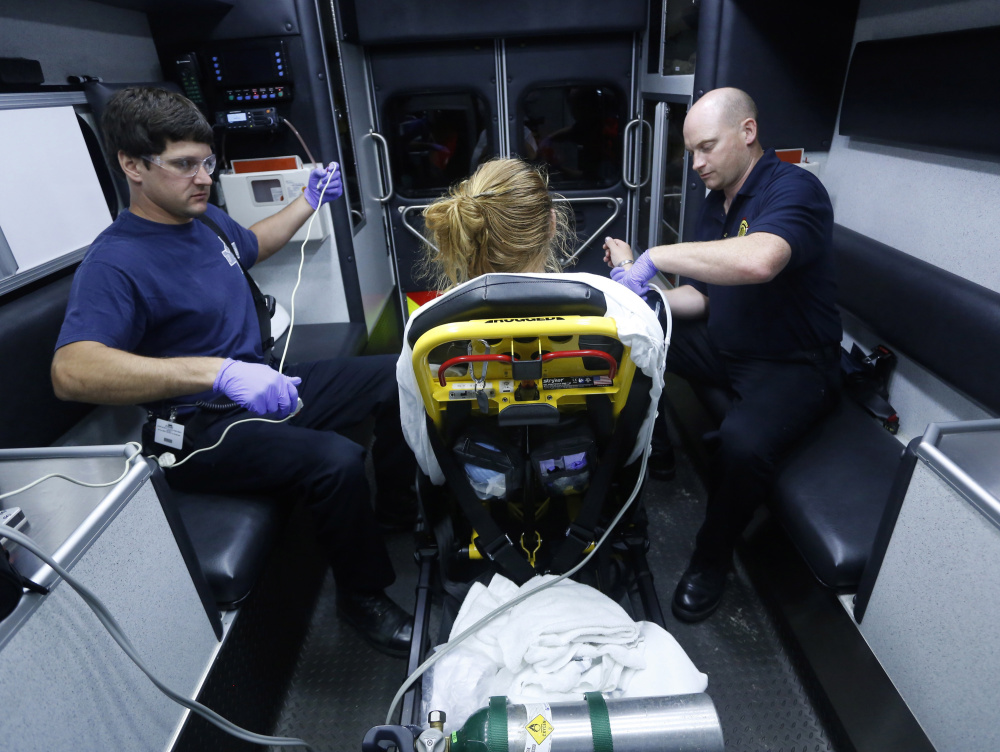Two men revived from drug overdoses by Westbrook police this week are alive because bystanders were there to call 911. Friends of the victims had failed to seek help.
That says a lot about the dissolution caused by drug addiction, as well as the state of mind and personal ethics of the so-called friends. But it is also a reminder that Maine law puts the punishment of petty drug possession ahead of the lives of those suffering from addiction.
Maine is the only state in New England, and one of only two on the East Coast, that does not offer some sort of immunity for people who seek medical assistance for someone experiencing an overdose, making it less likely that emergency personnel will arrive in time to administer lifesaving aid.
With overdoses at a record high, and law enforcement embracing a more humane approach to addiction, that makes no sense.
The Legislature tried to correct that wrong last year, passing a bill that would have provided an affirmative defense to prosecution for drug possession – and only possession – for people who call for help during an overdose, meaning that, once charged and in court, the person could use in their defense the fact they were arrested because they came to someone’s aid.
It wasn’t much, but it was something. However, Gov. LePage vetoed the bill, arguing that an arrest, and a sentence to drug court, is the best path to sobriety.
More often, though, an arrest is never made. As Westbrook police Chief Janine Roberts pointed out this week, police don’t always make an arrest in the event of an overdose, or at least they don’t make it a priority.
In any case, without an immunity law, it is more likely that the call never happens, and a person’s life is left to chance. That the police may not arrest the caller is just not enough assurance.
That is backed by a study in Washington state, which has an overdose immunity law. It found that when immunity laws are in place and people know about them, the vast majority of drug users will call for help during an overdose.
However, when laws are not in place, or when they are and drug users are not aware, emergency personnel will not be called, and people will die unnecessarily.
That makes it imperative that Maine pass a law that grants narrow immunity in such cases, and lays out a plan for making it known that drug users who call for help will not be arrested.
That would be in line with other law enforcement strategies being adopted in Maine and elsewhere as the drug crisis continues to grow.
Recognizing that drug possession is often just a symptom of addiction, police departments are now opening their doors to help, without judgment or prosecution. Why should this be any different?
After all, overdose immunity laws are not for the person witnessing the overdose – they’re for the person on the ground, taking shorter and shorter breaths.
Send questions/comments to the editors.


